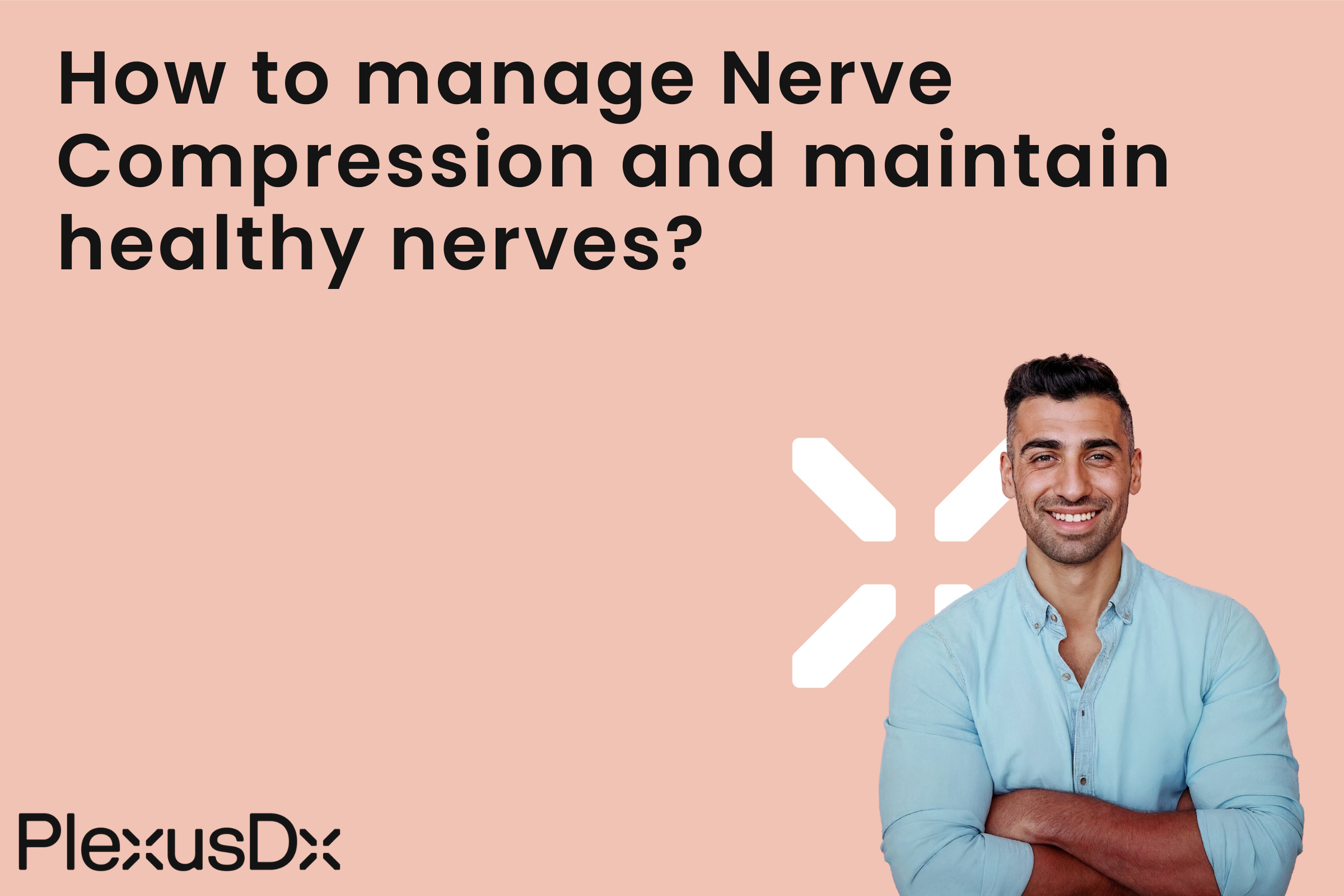PlexusDx: Personalized Health Reports
PlexusDx stands out as a top provider of personalized health reports that reveal important genetic information which influences your health. Today's discussion focuses on nerve compression which creates discomfort and disrupts daily activities. We will examine nerve compression intricacies including genetic factors alongside actionable steps to effectively manage this condition.
Nerve Compression Syndrome: Causes and Symptoms
Compression forces applied to a nerve cause nerve compression syndrome which manifests as pain and sensations of tingling, numbness, and weakness. Surrounding tissues such as tendons ligaments or bones create pressure that disrupts normal nerve function. The symptoms and severity of nerve compression syndrome depend on which nerve is affected and where the pressure occurs. The median nerve becomes affected by carpal tunnel syndrome in the wrist and sciatica involves compression of the sciatic nerve.
Genetic Predispositions and Risk Factors
Genetic predispositions significantly increase the risk of nerve compression in many individuals. Nerve compression syndromes can develop from various health conditions such as obesity, diabetes, rheumatoid arthritis, thyroid disorders, bone spurs, and tumors. The risk of developing nerve compression problems rises when lifestyle elements like repetitive actions, extended static positions, physical injuries, pregnancy stages, and genetic predispositions are present. The probability of developing carpal tunnel syndrome increases due to inherited wrist structural anomalies along with joint disorders and nonstandard bone growth patterns.
Effective Management Strategies
Effective nerve compression treatment requires the combination of genetic understanding with actionable lifestyle changes in a holistic approach. Here you will find actionable steps that help manage nerve compression and maintain healthy nerves:
- Maintain a Healthy Weight: Excess body weight stands as a major contributor to nerve compression problems. Maintaining a healthy weight decreases nerve pressure and reduces chances of developing compression symptoms.
- Stay Active: Physical activity performed regularly helps improve blood circulation while strengthening muscles and reducing nerve compression. Nerve health benefits from exercises which build strength and flexibility while improving general mobility.
- Practice Good Posture: Good posture during sitting, standing and performing everyday tasks helps to prevent unnecessary nerve strain. Pay attention to your posture positioning and adjust when necessary because it helps minimize the risk of developing compression problems.
- Take Breaks: When you engage in repetitive movements or sit for extended periods during work or daily tasks you should schedule regular breaks. Actively stretching your body, shifting positions regularly and moving around helps reduce nerve pressure and prevents discomfort from compression.
- Seek Professional Guidance: A healthcare provider should be consulted for a comprehensive evaluation if nerve compression symptoms persist. A healthcare provider will conduct personalized evaluations and offer treatment plans along with diagnostic testing based on your individual needs.
Conclusion
Proactive nerve health measures combined with genetic insights into nerve compression play a pivotal role in maintaining overall well-being. The Precision Health & Wellness tests from PlexusDx deliver critical insights via PlexusDx.com and retailers like Amazon and Walmart to help people optimize their health and make educated choices throughout their wellness journeys. Activate your health journey now through PlexusDx by discovering tailored health insights. Prioritize your health because taking proactive measures significantly aids in nerve compression management and optimal nerve health promotion. Adopt a holistic wellness strategy while using genetic information to improve your life and consult professionals as necessary. Through partnership we help you manage your health and well-being so you can build a healthier future.

Share:
What is the role of COL5A1 gene in injury susceptibility and fitness enhancement?
Genetic basis and management of milk allergy?